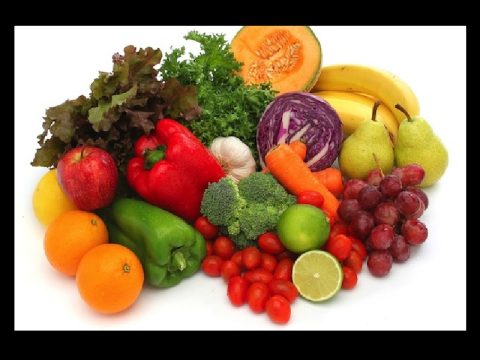RESEARCHERS FIND CLEVER WAY TO GET PEOPLE TO EAT MORE VEGETABLES
Getting people to eat more vegetables may be as easy as a marketing makeover, according to new research.
A study published today in JAMA Internal Medicine finds that people consumed more veggies when they were labeled with indulgent descriptions usually reserved for more decadent foods.
“We really wanted to see if we used descriptors typically reserved for less healthy foods and applied those to healthy foods if we could get people to eat more vegetables,” study author Alia Crum, an assistant professor of psychology and director of the Mind & Body Lab at Stanford University, told CBS News.
The study was conducted in a large university cafeteria where vegetables were served daily. Each day, the researchers changed how certain vegetables were labeled using four types of descriptions: basic, healthy restrictive, healthy positive or indulgent.
For example, beets were described as “lighter choice beets with no added sugar” (healthy restrictive, emphasizing the lack of unhealthful ingredients), “high-antioxidant beets” (healthy positive, emphasizing the vegetable’s health benefits), “dynamite chili and tangy lime-seasoned beets” (indulgent, emphasizing flavor), or simply “beets” (basic).
Other indulgent descriptions included “sweet sizzlin’ green beans and crispy shallots,” “twisted citrus glazed carrots,” “zesty ginger-turmeric sweet potatoes,” and “slow-roasted caramelized zucchini bites.”
No changes were made to how the vegetables were prepared or served the only difference was the wording on the label.
Each day over the course of 10 weeks, research assistants discreetly recorded the number of diners who purchased the vegetable and weighed how much was taken from the serving bowl.
“The idea was not to lie to people, not to tell them they’re eating something that they’re not,” Crum said. “But we can just slightly change the language so that these words could create a sense of indulgence without altering what the food actually is.”
The results showed that people chose vegetables with indulgent labeling 25 percent more often than those with basic labeling, 35 percent more than healthy positive labeling and 41 percent more than healthy restrictive labeling, which proved to be the least appealing.
When it came to the total amount of vegetables served per day, indulgent labeling led people to scoop up 16 percent more veggies than those labeled healthy positive, 23 percent more than basic and 33 more than when the same dishes had healthy restrictive labels.
The researchers say the strategy could be easily implemented by cafeterias, restaurants, and manufacturers to increase the consumption of healthier foods. “It’s a cheap, easy way to rethink our approach to motivating health eating,” Crum said.
She also hopes the study will help shift the cultural mindset around healthy foods.
“It’s this mindset that eating healthy is depriving and distasteful and this is just one step toward shifting that towards really giving healthy and nutritious food the credit they deserve,” she said. “They can be and are in many ways exciting and delicious and indulgent.”





